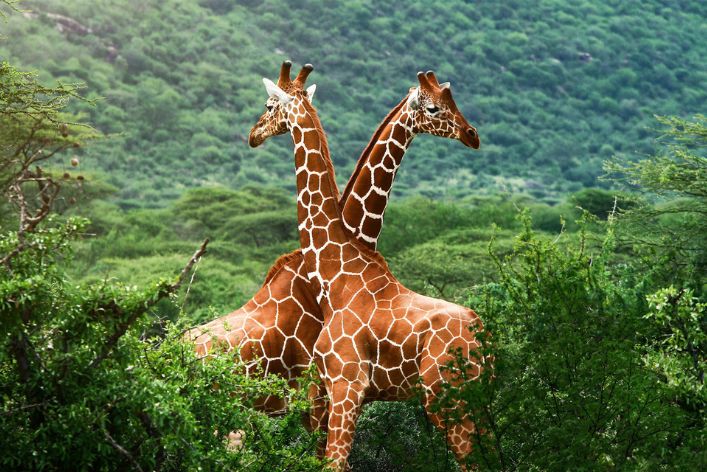Last Updated on May 17, 2023

The Yoruba people of southwest Nigeria and West Africa engage in ifa divination. Ifa divination is still a significant aspect of Yoruba culture in Nigeria and for Africans in America even if its exact origins are unknown. It appears to have existed in West Africa before Christianity and Islam.
The earth (aye) is managed and controlled by the numerous orisa who inhabit the world but have access to the customs and events in the upper world (orun [heaven] and the underworld, according to the more than 50 million Yoruba people who live in Nigeria and other countries (Ile). Orunmila, the god of divination and one among many deities, uses Ifa as his method of divination. The complex Ifa divination method reveals the happenings, events, and actions of humans.
The diviner’s (sometimes referred to as a babalawo) function in Ifa is to assist a person or community in determining what is in store for them in their daily life. It takes a lot of training to become a babalawo. Each chapter of the divination method, known as Odu, has elaborate narratives of legendary stories relating to history, events, ceremonial acts, etc. There are, in theory, 256 chapters in the divination process. Importantly, the Odu is an oral tradition, hence in order to be eligible to become a babalawo, a candidate must memorise all 256 of the Odu or the majority of them.
An Ifa divination session
The babalawo and the inquirer engage in a divination session during which they pay tribute to Orunmila and the other ancestors who had done successful divinations in the past, salute the major cosmic forces, and invoke the mystical moms, without whose aid the rites would not be effective. The inquirer then approaches the diviner, taps his forehead with a coin or a piece of paper, murmurs his prayers and requests, and asks for the revelation of the secret underlying his issue as well as an appropriate remedy.
The diviner then picks a few palm nuts from a divination bowl, tries to grab the majority of the nuts with his other hand, and uses the one or two remaining nuts to indicate the outcomes of his action in the powder in the divination tray. The diviner then repeats this procedure until the divination tray has four sides.
This randomising procedure yields the Odu divination sign, which is then spoken by the babalawo. The client hears, the babalawo interprets, and finally offers a resolution. An understanding sometimes emerges when the client and Babalawo agree to conduct another session to verify if they correctly identified the question. Both the randomised patterns in the palm nuts in the Ifa bowl and human interaction are undoubtedly important to the process.
How is Ifa structured?
The supreme deity (Olodumare), the spirits (Orisa), and the ancestors are said to be the three main tenets of the Ifa faith. Eleda, Eledumare, and Olorun are some of the alternative names for Olodumare.
Olodumare
Ifa holds that Olodumare, the sole supreme God, is the only God. The phrase “O n odù mà rè,” which roughly translates to “one who owns all creation so that it does not become empty,” is the source of the name. Olodumare, according to the Yoruba, has no gender and hardly participates in human activities on Earth. According to religion, Olodumare created a full universe that contains everything people need to live happy and fulfilling lives.
According to the Ifa creation theory, Olodumare made the entire universe, created the seasons, night and day, and determined the fates of people. The Yorubas describe those who experience misfortune as being “under the lashes of the Olodumare.” After humanity pleaded with Olodumare to spare them the hardships of becoming old and weak, he also created death.
Orisa/Orisha
Every component of nature and every living thing have an underlying power that sustains them, according to Ifa. The wind, thunder, flowers, storms, clouds, rocks, rivers, people, and animals are all included in this. The Orisa/Orisha are the natural forces that make up and sustain the universe.
Each Orisa carries specific responsibilities. The belief is that all humans, knowingly or unknowingly, communicate continuously with these natural forces. The Orisa act as the bridge between us and the supreme entity.
Eshu
According to the Ifa faith, there are 201 powers on each side: 201 powers on the right, also known as Iborra or Irumole, and 201 powers on the left, also known as Ajogun. The Orisa are the right-side powers, and the demons are the left-side powers.
While the Ajogun poses barriers and never-ending challenges to humanity, the Orisa safeguards and promotes its welfare. Eshu occupies a special position in the spirit since he is both Ajogun and Orisa. He can simultaneously be on both sides. Eshu is in charge of the eight nefarious agents mentioned in Ifa since he is the head of the demons. Iku (death), Arun (illness), Egba (paralysis), Epe (curse), Ewon (incarceration), Oran (big trouble), Ofo (huge loss), and Ese (all other problems) are among them.
Ogun
Ogun, revered as the master of the knife, holds a direct link to Ifa sacrifices. As he wields power over the knife, he’s believed to be the first to experience the blood of the sacrifice, despite Eshu often being the initial recipient of the sacrifice.
Ogun is a symbol for the sacrificed being’s life power. He is considered to clear the way and take away barriers for people, facilitating their spiritual development. He is also the origin of the power that keeps all life in the universe alive.
According to Yoruba folklore, Ogun vowed to remain awake as long as the globe kept rotating. This is so that he can be busy with the other half of the world while the other half is awake.
Yemaya
Yemaya, a female Orisha, is regarded as the most potent of all-natural forces. She was granted control over the oceans and seas, moving from left to right to produce the well-known wave motion. According to legend, Yemaya wears a variety of hues, including pink, white, blue, and green. It is stated that when Yemaya’s children are ill, they bring baskets of white roses to the seaside and call the Orisa by throwing her white roses.
Ancestors
Everyone has the right to communicate with their ancestors, and no specific rituals or permits are necessary, according to the Ifa faith. For the majority of people, this communication takes the form of discussions in dreams or memories of ancestors.
Conclusion
There are so many other gods that form the structure of the Ifa religion. Some of them include Oshosi, Ozun, Obatala, Oya Yansan, Orula, Osun and so on. Divination is one of the most significant facets of the Ifa faith. The world is made aware of prophecy and divinity by the Orunmila (great priest). Priests are classified as either Babalawos or Iyanifas depending on gender. These priests employ kola nuts known as “Ikin,” a divination tray known as “Opon Ifa,” and a chain of divination known as “Opele.” All of these tools are used to interpret oracles and prophecies. Through divination, a person can determine whether they are living in balance with nature and on the right route for them.
Before You Go…
Hey, thank you for reading this blog to the end. I hope it was helpful. Let me tell you a little bit about Nicholas Idoko Technologies. We help businesses and companies build an online presence by developing web, mobile, desktop, and blockchain applications.
We also help aspiring software developers and programmers learn the skills they need to have a successful career. Take your first step to becoming a programming boss by joining our Learn To Code academy today!
Be sure to contact us if you need more information or have any questions! We are readily available.











